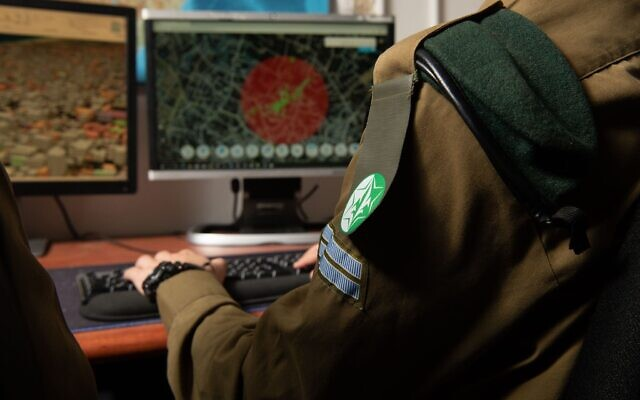
A soldier from the IDF's Military Intelligence Directorate works at a computer. (Israel Defense Forces)
Beirut, September 17 (RHC)-- Experts have told teleSUR that the attack is part of a psychological war in which Israel has a long history.
The recent Israeli cyber attack against southern Lebanon not only leaves a provisional balance of at least 11 dead and thousands wounded, but also produces a situation of terror and psychosis in the citizenry.
Analyst Raphael Machado, consulted by teleSUR, offered a critical view of the Israeli attack and pointed out that the use of cyber technology is a tactic designed to generate terror and destabilization among the civilian population.
“This attack does not only affect military enemies; it seeks to destabilize the civilian population, including children and adults. It is a form of psychological warfare,” Bueno explained.
According to the analyst, the attack reflects a broader strategy that moves away from conventional military confrontation and focuses on sowing fear and demoralization among the population.
Machado also highlighted that the Israeli attack could be interpreted as a form of collective psychopathy, where religion is used to justify acts of violence. “It is a recurring pattern in Israeli war praxis. They have intervened in the media and carried out cyber attacks as part of their strategy to demoralize their adversaries,” he added.
Meanwhile, Machado criticized the lack of effective response by the international community, which has expressed concern but has not taken concrete measures against Israel.
This, despite the fact that in southern Lebanon, the attack has had a devastating impact on infrastructure and the mental stability of citizens and hospitals are overwhelmed with wounded. A crisis that is made even worse by interference in communications.
As a result, residents have witnessed an unprecedented attack that has left the population vulnerable and without essential resources to deal with the emergency.
Criticism has also come from the diplomatic sphere. The Lebanese Foreign Ministry has denounced the attack to the UN Security Council, seeking an international response that has so far been insufficient. The lack of official comments from Israel has contributed to a sense of impunity, complicating a forceful global response.
For his part, international analyst Daniel Lobato highlighted how cyber espionage and technological manipulation are part of the Israeli strategy.
The interviewee recalled previous incidents, such as interference in Palestinian television during the second intifada, as examples of how Israel uses technology to control the narrative in conflicts.
“Technology is not only used to attack infrastructure, but also to create disinformation and terror. This affects both physical infrastructure and public perception,” Lobato said.
Raphael Machado also stressed that the attack in Lebanon is in line with a global trend where advanced technologies are used for psychological warfare and espionage. He emphasized that this attack highlights the need for a more effective international response to address not only the immediate impact of these attacks, but also the long-term implications for global security.
[ SOURCE: teleSUR ]

